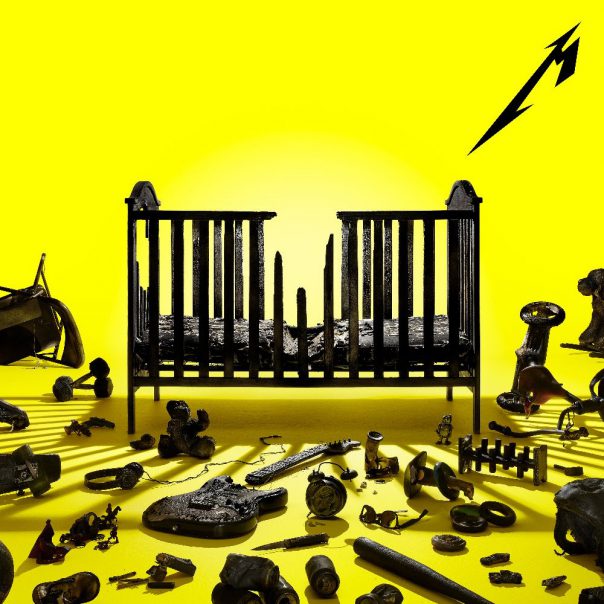
This may sound weird about metal but … it can have soul. It can have real emotional depth and that, in turn, makes listeners care about the music and the people who make it. Metal can be some of the most inspirational, creative and sincere music on the planet. Metallica has made a good chunk of that music over the decades, for which they deserve credit. They were co-architects of a subgenre.
But I’m seriously at a loss as to what they’re doing now on new album 72 Seasons. It’s like the Bay Area thrash kings’ creative gun is just about out of bullets. Until you get to the last two songs, which go straight back to the British metal influences.
The rest of the record sounds like metal; but more like four normal guys getting paid to write some new songs that sound like old Metallica.
First single “Lux Æterna” gave fans such hope when released a few months ago. Maybe it won’t be the best song on the record, we said. Maybe it’s just a taste of what’s to come. It sounded like the classic Metallica motor with a fresh coat of paint on the car.
Turns out the car doesn’t really leave the driveway.
As with every album they’ve made the past two decades, Metallica struggles with its identity on 72 Seasons. It shouldn’t. The band evolved musically, then started caring what too many people thought, and still can’t decide if it’s going to naturally evolve – like it did in the ’90s – or whether it’s going to cave into the orthodox fans that never forgave them for tilting mainstream.
This is a band that never recovered from making a documentary, “Some Kind of Monster,” showing guitar hero Kirk Hammett having to argue (unsuccessfully) for guitar solos, as if Metallica was dependent on someone else’s trends.
The identity crisis continues, despite this being a very metal album. In fact, there’s no let up. But writing songs that qualify as metal doesn’t work if those songs don’t qualify as good. Slow and airy “Unforgiven” worked in 1991 because, not only was it well-written and timely, but it was on the same record side as measured pounder “Sad But True.” There was a marked, dynamic difference and the songs stood alone.
The new album has 12 songs, only one of which is shorter than four and a half minutes (the single; go figure). And nearly every song – outside of the longest, ironically – just feels way too long. It’s like they’re just getting beat to death instead of being long because they should be.
Opener and title track “72 Seasons” makes their intentions pretty clear from the get-go. It initially moves well and is pretty heavy. But it doesn’t go far once it establishes its ground. After seven and a half minutes, it feels long by the end.
“Shadows Follow” treads the same path. It sounds like Metallica, but there’s not much interesting or inspiring about it. The band sets up with a decent riff on “Screaming Suicide” and just rides it into the ground. Hetfield’s vocal lines start sounding the same. He’s still snarling, but at the same pace and in a way that sounds less than threatening.
“Sleepwalk My Life Away” is more of the same. “You Must Burn” comes at a sludgy tempo that’s likely supposed to sound heavy, but at this point songs have length and different parts inserted because they need to. Metallica seriously lacks motivation if they’re writing lyrics about burning witches. Hammett’s wah-wah solos are still high points, but he can only do so much.
After high point “Lux Æterna,” which cooks through, makes its great point with a couple familiar hooks and exits in just over three minutes, “Crown of Barbed Wire” sounds like some nasty fun. The riff moves well and there’s hope until the familiar vocal line kicks in, bringing it back down to mediocre.
At this point, it’s worth skipping forward to the last couple songs. “Room of Mirrors” is sleek and relentless as it gallops into some epic Iron-Maiden-ish harmony leads. It’s easily one of the best constructed songs on the record, which leads us to “Inamorata.”
Maybe 2023 Metallica is at its best when showing its roots. Because “Inamorata” is Metallica back to being straightaway inspired by Black Sabbath. That’s the case at least in riff and structure, which features a breezy ’70s Sabbath breakdown that expertly sets up the band shifting back into more harmony leads and a little of that prog-metal (with melody!) with which young Metallica used to flirt. It’s powerfully constructed and actually worthy of its 11-minute runtime. It feels like the most Metallica song on the record … and it took way too long to get here.
Maybe they can start there on the next album.
